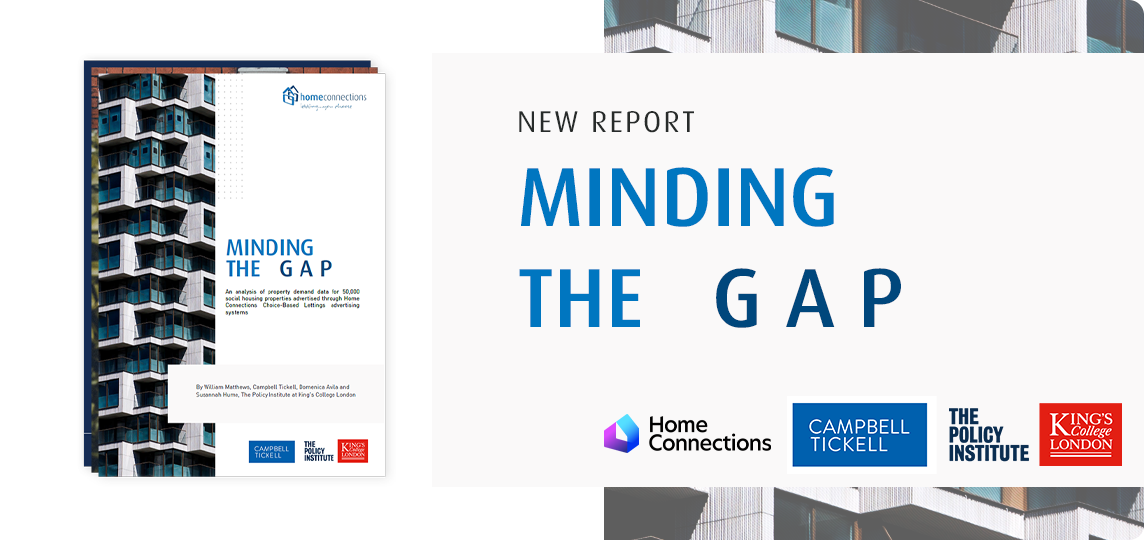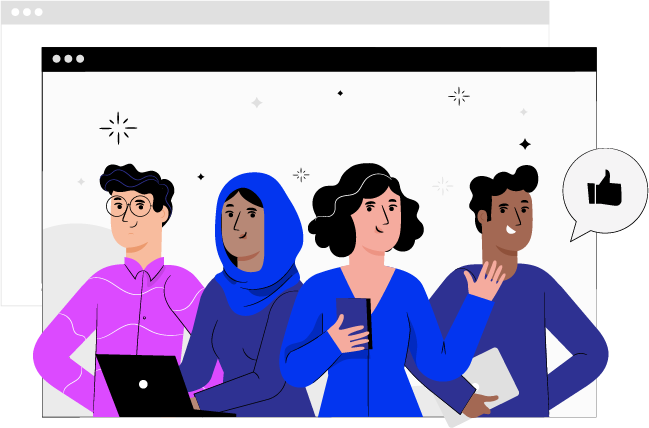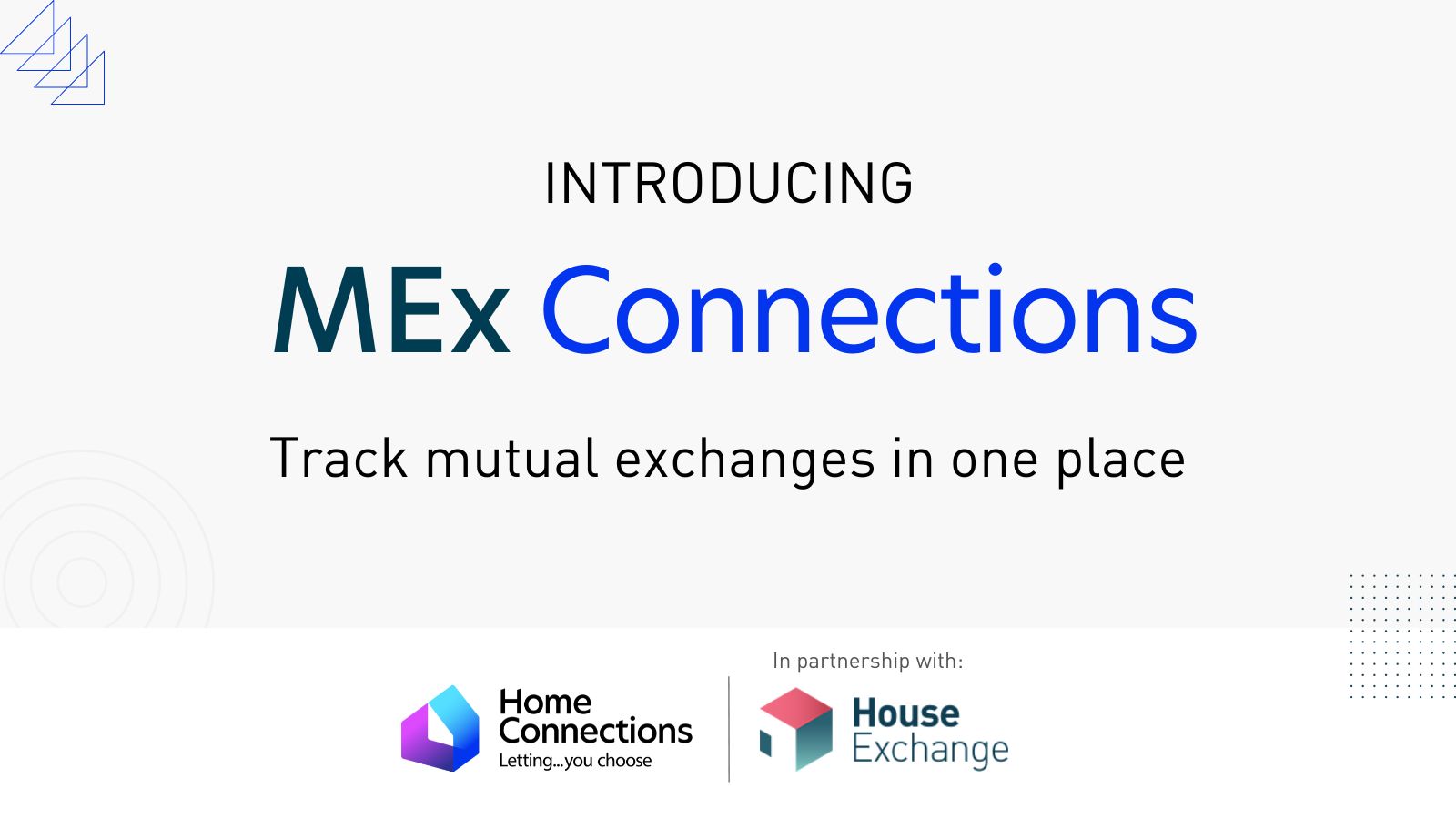How to transform data into intelligence

The alchemy of turning data into intelligence
I will always remember the first time I experienced it. I was working for Camden Council, and we were at the beginning of a large data transformation project analysing the data from the Parking department to find some interesting insight for management.
I remember the analyst walking over to me with a look of satisfaction as he showed me a world map where he had charted all the countries where Camden officers had issued parking fines for cars with international licence plates. Most of them were in Ireland and France, some in Spain and Holland, but the most interesting insight was a large cluster of fines in Afghanistan.
The map provided the wow moment. We presented this analysis to the leadership team in the Parking department who immediately took action. They changed the drop-down in the mobile application and carried out training to emphasise the importance of entering accurate data in the system. In 3 months, their recovery for international parking fines had increased significantly.

Don't choose the first option in the dropdown! (Source: Get My Parking)
The power of storytelling when presenting data
I love this story because it exemplifies the power of turning data into intelligence. It shows the importance of data quality, and how the business system’s interface may negatively impact it. How many times have we seen officers entering a resident’s telephone number in the wrong field or adding comments where the address should go? Is it the fault of the housing management system? Or should colleagues be more aware of the impact of not entering data correctly?
The Camden Parking example also shows the importance of telling a story with maximum impact. We could have shown a bar chart with Afghanistan as one of the highest bars, but it wouldn’t have had the same impact as showing a world map with a huge cluster of fines issued to cars from a country 3,500 miles away in a different continent.
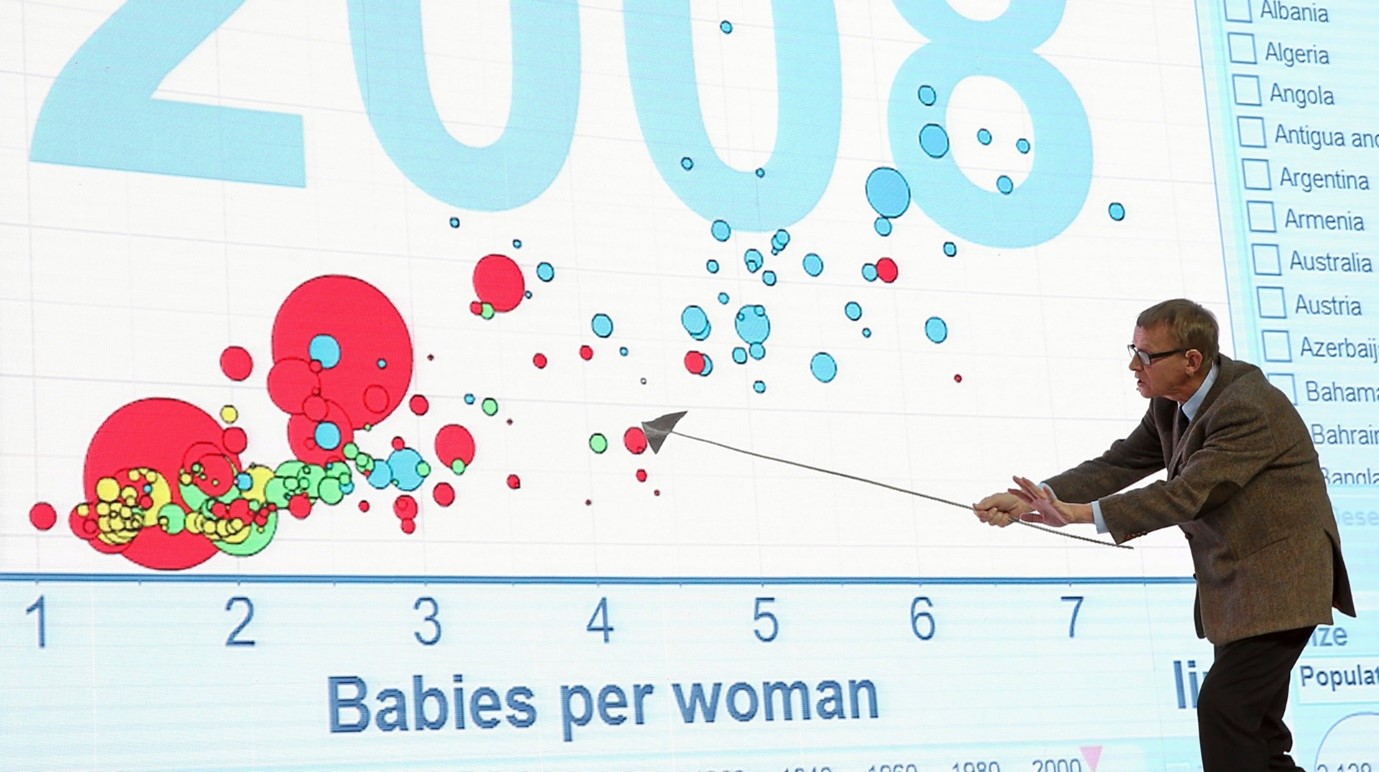
Bring a little bit of excitement to your analysis like Hans Rosling. (Source: Nagens Nyheter)
It’s hard to know whether senior management would have taken the same action and achieved the same results if we had chosen a more muted approach to sharing the data insight. What we know is that it was memorable, and the Director kept talking about it with other senior leaders in the organisation, helping us gain traction with the programme.
Challenges and opportunities in housing
The lessons from those early days of rolling out a data transformation programme are still valid today in housing. There is more data to analyse now than ever before, as digital transformation grows in the sector.
There is also more data being generated that is not being analysed. What experts call ‘dark data’ may account for over 60% of an organisation’s data by some estimates. The use of Internet of Things (IoT) devices to monitor homes is also significantly increasing. These devices generate real-time data which may be used to intervene proactively and prevent expensive repairs, which impact on resident satisfaction and may end up escalating to complaints.
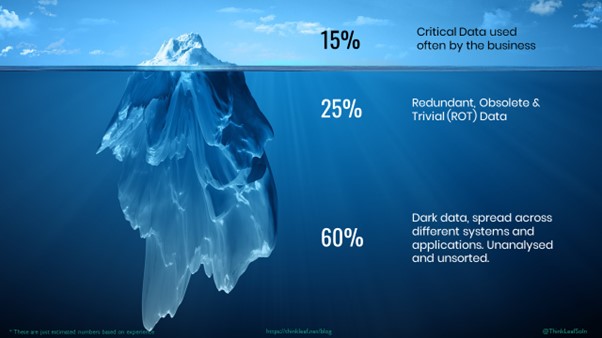
Dark data could be a powerful source of insight. (Source: Think Leaf Solutions)
The challenge with this explosive growth in data over the last 10-15 years is that some of the problems that existed before have grown exponentially. Data quality, for example, remains a big barrier to turning data into intelligence. The regulator has emphasised its concerns around the data integrity from providers. It’s common that staff don’t trust the data in systems and prefer to keep their own spreadsheets or other sources which only compounds the problem.
Data has also become more complex, and the technical expertise needed to extract data and provide insight has become more difficult to find. Many other sectors are using data to drive value and improve their products and services. With significant successes in areas such as e-commerce, banking, and insurance, it is difficult for housing organisations to compete for talent in the current market.
Good training programmes and upskilling existing staff are essential to empower those who understand the business to explore and analyse its data. When combining the passion for public service with the power of data, the potential is thrilling.
Making data-based decisions
Perhaps the biggest challenge I have seen is cultural. There are many leaders in housing who have worked as housing officers and deeply understand the job. They have years of experience and use this to make decisions and challenge colleagues when things are not working. Unfortunately, this huge strength is also a weakness as they are not used to accessing data to inform their decisions.
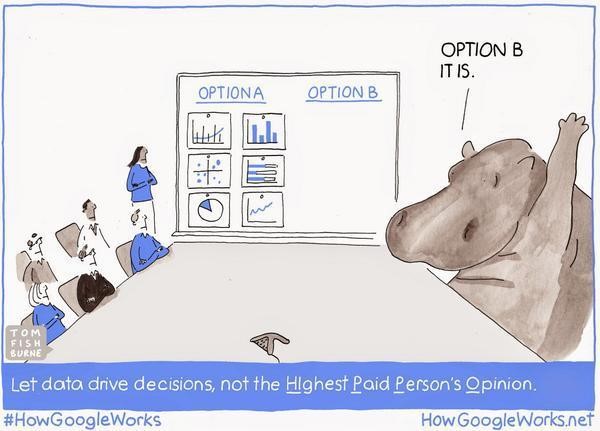
Educating the HiPPO is the biggest challenge. (Source: Tom Fishburne)
This is quite telling when senior leaders join housing from other industries and ask for data. In many cases, the data isn’t there, or things are not documented and live in people’s heads. This is in my opinion, the biggest change that will open the gates to data transformation in housing. Once leaders experience the power of turning data into intelligence and how that intelligence can help make better decisions and lead to better outcomes, the transformation will gain energy and pace.
Data professionals have a key role to play to lead this transformation. It’s never been a better time to start turning your data into intelligence.
Our housing needs software offers integration with powerful business intelligence tools to support you find meaningful insights within your data and help you make better business decisions. Book a demonstration today!

By Arturo Dell, Associate Director of Data and Technology at Home Connections
Related Stories

Six major housing trends to look out for in 2023
